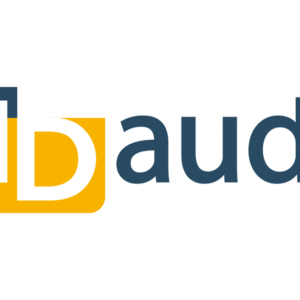Healthcare organizations today confront an increasingly complex regulatory environment. Audits may arrive from Recovery Audit Contractors (RACs), Zone Program Integrity Contractors (ZPICs), or commercial payers—all with distinct documentation requirements and deadlines. Relying on ad-hoc policy repositories, spreadsheets, and siloed communications exposes institutions to compliance gaps and financial risk. A unified platform from MDaudit brings together document control, audit workflows, and analytics in a single, cloud-based ecosystem—streamlining processes and safeguarding both patient data and revenue integrity.
Dynamic Document Control and Digital Attestations
Effective compliance begins by treating policies as living documents rather than archived files. Look for version control that logs every update, automated distribution that delivers new protocols to the right staff, and digital attestation workflows that record who acknowledged each change. Without these capabilities, healthcare leaders struggle to demonstrate policy awareness during external reviews—often triggering corrective-action plans. MDaudit’s document management ensures every policy revision automatically rolls out with an auditable acknowledgment trail.
Embedded Analytics for Real-Time Insights
Manual exports into spreadsheets waste valuable time and risk outdated reporting. Modern compliance platforms embed configurable dashboards directly into the user interface, showing metrics like policy-acknowledgement rates, open corrective actions, and emerging risk trends. For example, the Revenue Integrity Platform correlates policy deviations with billing and remittance data, quantifying the dollar impact of each compliance gap as it occurs.
Automation and Integration to Eliminate Manual Work
Standalone portals that don’t integrate with core systems simply shift the workload. Leading solutions ingest feeds from human resources platforms, learning-management systems, electronic health record (EHR) applications, and billing engines—normalizing disparate data into a unified framework. Automated reminders prompt staff to complete annual policy reviews or certification renewals, while real-time alerts surface audit findings directly in clinicians’ task lists. This reduces follow-up emails and prevents deadlines from slipping.
The Continuous Risk Monitoring module extends this integration by applying machine-learning models to live claims data, surfacing anomalies before they mature into costly denials or recoupments.
Scalability, Security, and Performance
From solo specialty clinics to multi-state hospital networks, healthcare enterprises demand responsive and secure compliance operations. Cloud-native architectures with auto-scaling guarantee performance even under heavy loads. At the same time, platforms must protect Protected Health Information in accordance with the Health Insurance Portability and Accountability Act (HIPAA). HITRUST certification, end-to-end encryption, role-based access controls, and detailed audit logs are non-negotiable safeguards that MDaudit enforces across its suite.
Seamless Workflow Integration with EMR and Billing Systems
The ultimate test of any compliance platform is how naturally it fits into daily clinical and financial workflows. True bi-directional integration means that audit findings and corrective-action tasks appear exactly where users work—in the electronic medical record inbox or the billing dashboard. For instance, when an omission in informed-consent documentation is detected, the platform surfaces a task in the EHR with contextual links to the relevant policy. On the financial side, coding exceptions flagged during internal reviews flow into the revenue cycle engine, allowing corrections before claims submission. MDaudit’s Audit Workflows solution achieves this high level of connectivity with major EHR and practice-management systems.
Partnering for Success: Training and Change Management
Even the most advanced platform requires robust vendor support and a structured change management plan to realize its full value. Evaluate each vendor’s onboarding curriculum, role-based training modules, and help-desk responsiveness. Platforms offering interactive, on-demand learning resources typically drive faster user adoption. Internally, forming a governance council—including compliance, Health Information Management, clinical leadership, and information technology—ensures that configuration decisions mirror real-world workflows and that roadblocks are addressed swiftly.
Balancing Total Cost of Ownership with ROI
True Total Cost of Ownership goes beyond license fees to include implementation services, integrations, data-mapping efforts, and support. On the benefit side, automation and analytics yield measurable returns: faster audit responses, fewer denials, and labor savings. One multi-hospital network reported a forty percent reduction in compliance labor hours and avoided over $200,000 in annual penalties after consolidating audit workflows, policy management, and real-time monitoring into a unified platform.
Future-Proofing Your Compliance Investment
Regulatory requirements and healthcare technologies evolve continuously. Forward-thinking organizations should partner with vendors that maintain an active product roadmap. Emerging capabilities include predictive analytics to forecast audit hotspots, Natural Language Processing to extract risks from free-text clinical notes, and blockchain-based audit trails for immutable review histories. Federated learning models may enable cross-institutional insights without compromising patient privacy. By choosing a partner committed to innovation, healthcare systems can ensure their compliance platform remains relevant.
To explore how MDaudit’s unified compliance suite can meet your organization’s needs, request a demo or speak with a product specialist today.



